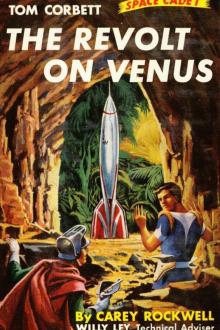Hypatia — or New Foes with an Old Face by Charles Kingsley (e book reader TXT) 📗

- Author: Charles Kingsley
Book online «Hypatia — or New Foes with an Old Face by Charles Kingsley (e book reader TXT) 📗». Author Charles Kingsley
But the visits of Synesius were few and far between; the distance between Carthage and Alexandria, and the labour of his diocese, and, worse than all, the growing difference in purpose between him and his beautiful teacher, made his protection all but valueless. And now Aben-Ezra was gone too, and with him were gone a thousand plans and hopes. To have converted him at last to a philosophic faith in the old gods! To have made him her instrument for turning back the stream of human error I... How often had that dream crossed her! And now, who would take his place? Athanasius? Synesius in his good-nature might dignify him with the name of brother, but to her he was a powerless pedant, destined to die without having wrought any deliverance on the earth, as indeed the event proved. Plutarch of Athens? He was superannuated. Syrianus? A mere logician, twisting Aristotle to mean what she knew, and he ought to have known, Aristotle never meant. Her father? A man of triangles and conic sections. How paltry they all looked by the side of the unfathomable Jew!—Spinners of charming cobwebs..... But would the flies condescend to be caught in them? Builders of pretty houses..... If people would but enter and live in them! Preachers of superfine morality.... which their admiring pupils never dreamt of practising. Without her, she well knew, philosophy must die in Alexandria. And was it her wisdom—or other and more earthly charms of hers—which enabled her to keep it alive? Sickening thought! Oh, that she were ugly, only to test the power of her doctrines!
Ho! The odds were fearful enough already; she would be glad of any help, however earthly and carnal. But was not the work hopeless? What she wanted was men who could act while she thought. And those were just the men whom she would find nowhere but—she knew it too well—in the hated Christian priesthood. And then that fearful Iphigenia sacrifice loomed in the distance as inevitable. The only hope of philosophy was in her despair! ...............
She dashed away the tears, and proudly entered the lecture-hall, and ascended the tribune like a goddess, amid the shouts of her audience.... What did she care for them? Would they do what she told them? She was half through her lecture before she could recollect herself, and banish from her mind the thought of Raphael. And at that point we will take the lecture up. ...............
‘Truth? Where is truth but in the soul itself? Facts, objects, are but phantoms matter-woven—ghosts of this earthly night, at which the soul, sleeping here in the mire and clay of matter, shudders and names its own vague tremors sense and perception. Yet, even as our nightly dreams stir in us the suspicion of mysterious and immaterial presences, unfettered by the bonds of time and space, so do these waking dreams which we call sight and sound. They are divine messengers, whom Zeus, pitying his children, even when he pent them in this prison-house of flesh, appointed to arouse in them dim recollections of that real world of souls whence they came. Awakened once to them; seeing, through the veil of sense and fact, the spiritual truth of which they are but the accidental garment, concealing the very thing which they make palpable, the philosopher may neglect the fact for the doctrine, the shell for the kernel, the body for the soul, of which it is but the symbol and the vehicle. What matter, then, to the philosopher whether these names of men, Hector or Priam, Helen or Achilles, were ever visible as phantoms of flesh and blood before the eyes of men? What matter whether they spoke or thought as he of Scios says they did? What matter, even, whether he himself ever had earthly life? The book is here—the word which men call his. Let the thoughts thereof have been at first whose they may, now they are mine. I have taken them to myself, and thought them to myself, and made them parts of my own soul. Nay, they were and ever will be parts of me; for they, even as the poet was, even as I am, are but a part of the universal soul. What matter, then, what myths grew up around those mighty thoughts of ancient seers? Let others try to reconcile the Cyclic fragments, or vindicate the Catalogue of ships. What has the philosopher lost, though the former were proved to be contradictory, and the latter interpolated? The thoughts are there, and ours, Let us open our hearts lovingly to receive them, from whencesoever they may have come. As in men, so in books, the soul is all with which our souls must deal; and the soul of the book is whatsoever beautiful, and true, and noble we can find in it. It matters not to us whether the poet was altogether conscious of the meanings which we can find in him. Consciously or unconsciously to him, the meanings must be there; for were they not there to be seen, how could we see them? There are those among the uninitiate vulgar—and those, too, who carry under the philosophic cloak hearts still uninitiate—who revile such interpretations as merely the sophistic and arbitrary sports of fancy. It lies with them to show what Homer meant, if our spiritual meanings be absurd; to tell the world why Homer is admirable, if that for which we hold him up to admiration does not exist in him. Will they say that the honour which he has enjoyed for ages was inspired by that which seems to be his first and literal meaning? And more, will they venture to impute that literal meaning to him? can they suppose that the divine soul of Homer could degrade itself to write of actual and physical feastings, and nuptials, and dances, actual nightly thefts of horses, actual fidelity of dogs and swineherds, actual intermarriages between deities and men, or that it is this seeming vulgarity which has won for him from the wisest of every age the title of the father of poetry? Degrading thought! fit only for the coarse and sense-bound tribe who can appreciate nothing but what is palpable to sense and sight! As soon believe the Christian scriptures, when they tell us of a deity who has hands and feet, eyes and ears, who condescends to command the patterns of furniture and culinary utensils, and is made perfect by being born—disgusting thought!—as the son of a village maiden, and defiling himself with the wants and sorrows of the lowest slaves!’
‘It is false! blasphemous! The Scriptures cannot lie!’ cried a voice from the farther end of the room.
It was Philammon’s. He had been listening to the whole lecture; and yet not so much listening as watching, in bewilderment, the beauty of the speaker, the grace of her action, the melody of her voice, and last, but not least, the maze of her rhetoric, as it glittered before his mind’s eye like a cobweb diamonded with dew. A sea of new thoughts and questions, if not of doubts, came rushing in at every sentence on his acute Greek intellect, all the more plentifully and irresistibly because his speculative faculty was as yet altogether waste and empty, undefended by any scientific culture from the inrushing flood. For the first time in his life he found himself face to face with the root-questions of all thought—‘What am I, and where?’ ‘What can I know?’ And in the half-terrified struggle with them, he had all but forgotten the purpose for which he entered the lecture-hall. He felt that he must break the spell. Was she not a heathen and a false prophetess? Here was something tangible to attack; and half in indignation at the blasphemy, half in order to force himself into action, he had sprung up and spoken.
A yell arose. ‘Turn the monk out!’ ‘Throw the rustic through the window!’ cried a dozen young gentlemen. Several of the most valiant began to scramble over the benches up to him; and Philammon was congratulating himself on the near approach of a glorious martyrdom, when Hypatia’s voice, calm and silvery, stifled the tumult in a moment.





Comments (0)